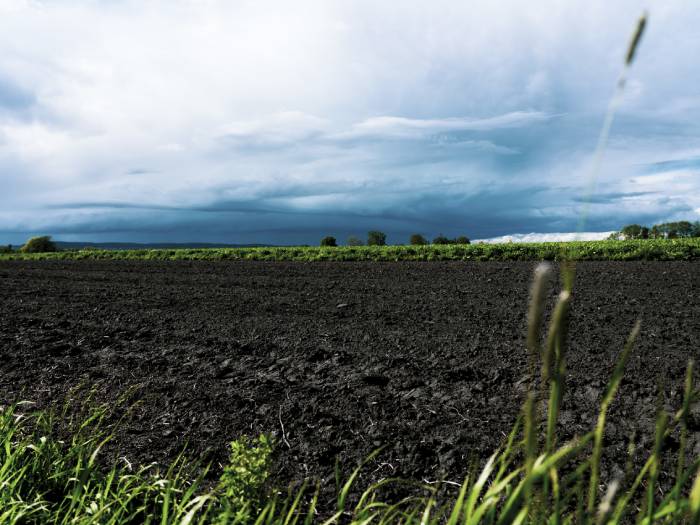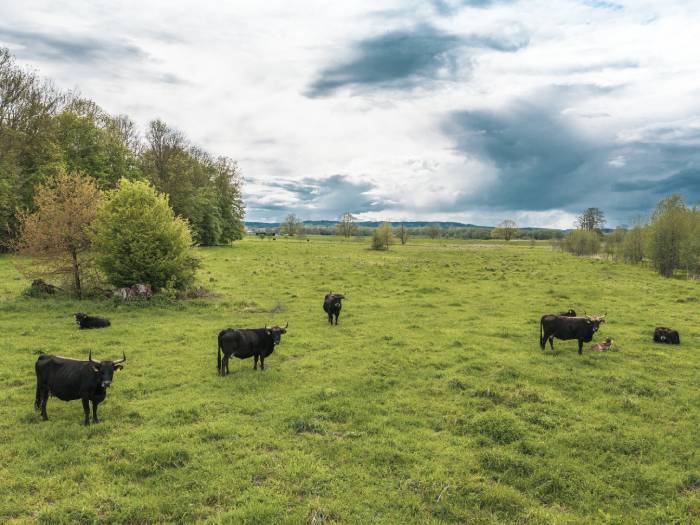Conserving peatlands to protect the environment: Audi’s commitment
Peatland is a highly efficient carbon store – even more than woodland. That’s why the Audi Environmental Foundation and the “Energie Effizient Einsetzen” association are looking at how to promote its conservation while also creating a model for developing the local economy.
Thanks to their high content of organic matter, peatland ecosystems – marshy areas with slow-moving cold water – are highly efficient carbon stores capable of storing more carbon dioxide than woodland covering an equivalent area. For this reason, the Audi Environmental Foundation and an alliance of German regional municipalities, cities and administrative districts are joining forces with the European Union’s LEADER support programme (the name stands for Liaison Entre Actions de Développement de l’Économie Rurale, or Links Between Actions for the Development of the Rural Economy). Its aim is to complete a study into the greenhouse gas-offsetting capacity of peatland, woodland and humus.
However, the project, also known as "CO2 -Regio”, has another aim: to set out how regional farmers can repurpose their land for alternative uses and be financially rewarded for their efforts.
Protecting peatland...

Peatland ecosystems have a positive impact on the climate and provide valuable natural habitats for a whole range of flora and fauna. By launching the “CO2-Regio” project, the non-profit association “Energie Effizient Einsetzen” (meaning “use energy efficiently”) aims to conserve the exceptional biodiversity of peatland and promote its greenhouse gas-storage capability.
The project has twin objectives: on the one hand, to formulate guidelines for farmers on how they can conserve and maintain any peatland on their estates; and on the other, to analyse how to ensure that they receive proper financial compensation for their efforts. “Peatland conservation will help to prevent carbon stored over centuries from escaping into the atmosphere,” explains Rüdiger Recknagel, Managing Director of the Audi Environmental Foundation.
...and humus too
Another focal point of the project includes humus formation and the reforestation of green areas – both equally effective climate protection measures that can be easily implemented by owners of property with no peatland.
The European Union’s support programme will enable the findings of the study to be put into practice, initially over the next two years. In addition to the Audi Environmental Foundation, other supporters of “CO2-Regio” include several districts, cities and local communities.
The economy and protecting the environment

The feasibility study aims to create a model for regional economic development and promote alternative land uses by creating a CO2-offsetting mechanism through peatland conservation, humus formation and reforestation. Landowners can therefore help to protect the climate while also receiving the proceeds from the carbon dioxide certificate trading scheme.
The aim is to enable all local residents as well as businesses and industries to purchase these certificates, helping to promote business cycles, nature conservation and climate protection. Meanwhile, offsetting unavoidable emissions will help to achieve the goal of carbon neutrality. Since the measures have a long-term impact, they help to ensure that these “climate managers” can continue to live off their land over the coming decades too.
Cutting-edge cultivation
The feasibility study looks at a variety of measures designed to reconcile climate protection and cost-effectiveness, including cultivation methods such as paludiculture (wet agriculture and forestry), grazing on peatland, agroforestry and agriculture with different humus formation methods.
But other methods such as simple peatland conservation and the combination of peatland conservation and photovoltaics also need to be investigated, taking into account factors such as practicability, cost-effectiveness, greenhouse gas production and the legal framework. The initial phase of the study aims to promote dialogue among producers and potential consumers, thereby ensuring that products like reeds, wood and bulrush are also recycled.
Involving the community
The “CO2-Regio” project will also look at the conditions that the certificates need to fulfil for them to be officially recognised and used. Throughout the entire period, interested parties and residents will have the opportunity to have more information about the study and play an active role in it. Once the study period has ended, the results will be available and fully accessible to all. The first information meeting is already scheduled to take place in the second half of 2021.
Source: AUDI AG
